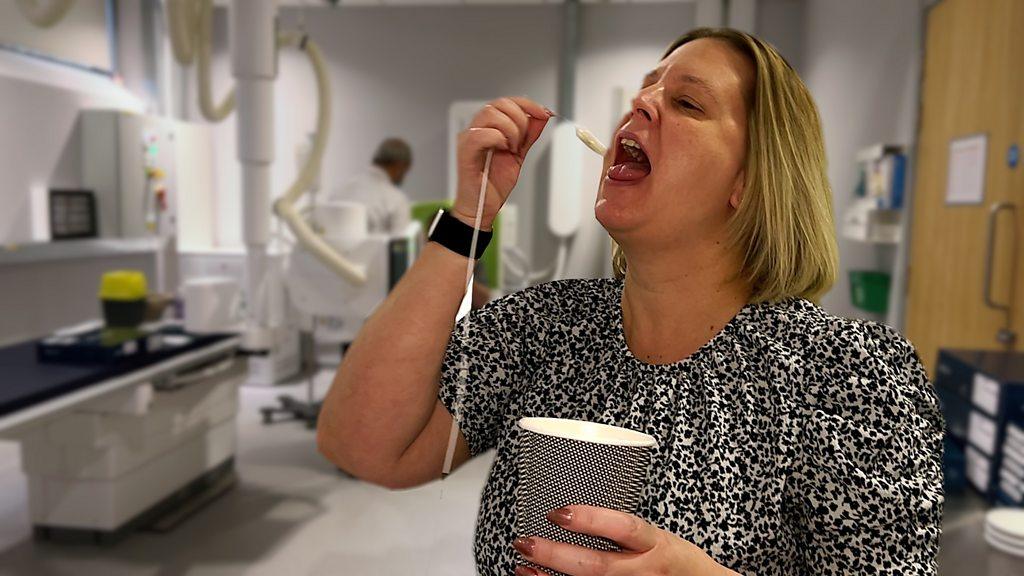Surgery for man after weight loss balloon pill success
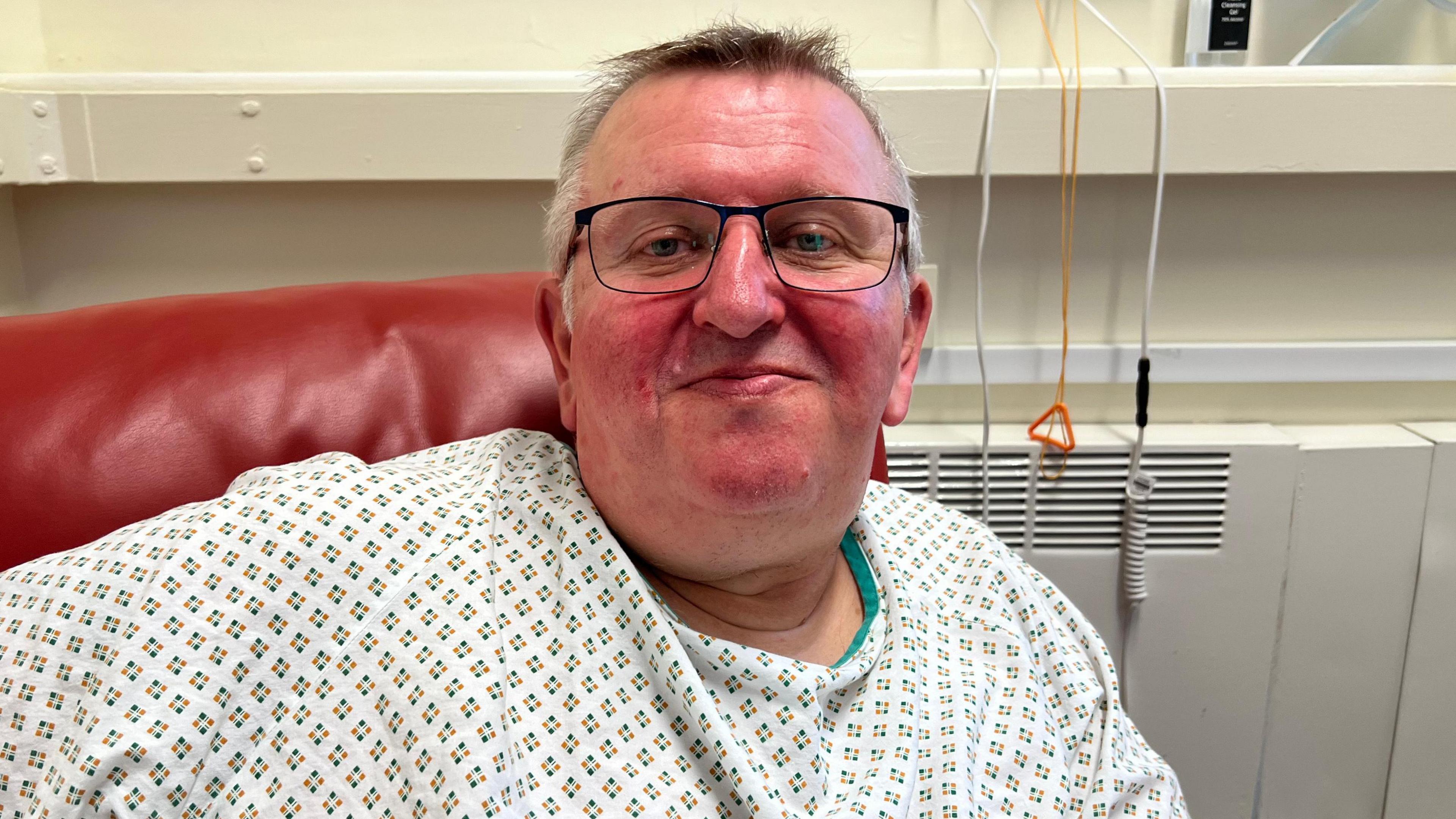
David Pulford will now undergo a gastric bypass after successfully losing three and a half stone (22.2kg).
- Published
A man who was given a new type of weight loss pill by the NHS has now had gastric bypass surgery after losing three and a half stone (22.2kg).
Dave Pulford from Yeovil was given a capsule that contained a gastric balloon at Musgrove Park Hospital, the first hospital to offer the treatment, in February.
Mr Pulford has now undergone a gastric bypass after losing enough weight through the new treatment.
"The balloon was part of a tool that helped me educate myself," he said.
Mr Pulford, who has lost five stone (31.7kg) since July 2023 and a total of three and a half stone (22.2kg) since having the balloon, said he had "never believed it [the weight loss] was possible".
The treatment includes swallowing a balloon capsule before it is inflated in the stomach, making the patient feel fuller for longer.
"I think with anybody you know what you need to do but I just needed something that was going to help me, someone who was going to guide me and I think that's what the balloon did," he said.
Mr Pulford said apart from a two days of nausea, the balloon treatment had been easy and enjoyable.
Somerset patients try new weight-loss gastric balloon pill
Mr Pulford's sister Jennifer said she was "hugely proud" of her brother.
"I'm just really glad that he's made that step. We've been so worried about him. We want him here longer."
Jennifer said she was most looking forward to her brother "feeling better in himself" and "more confident".
"I think this was the right time. I don't think he was ever really ready before," she added.
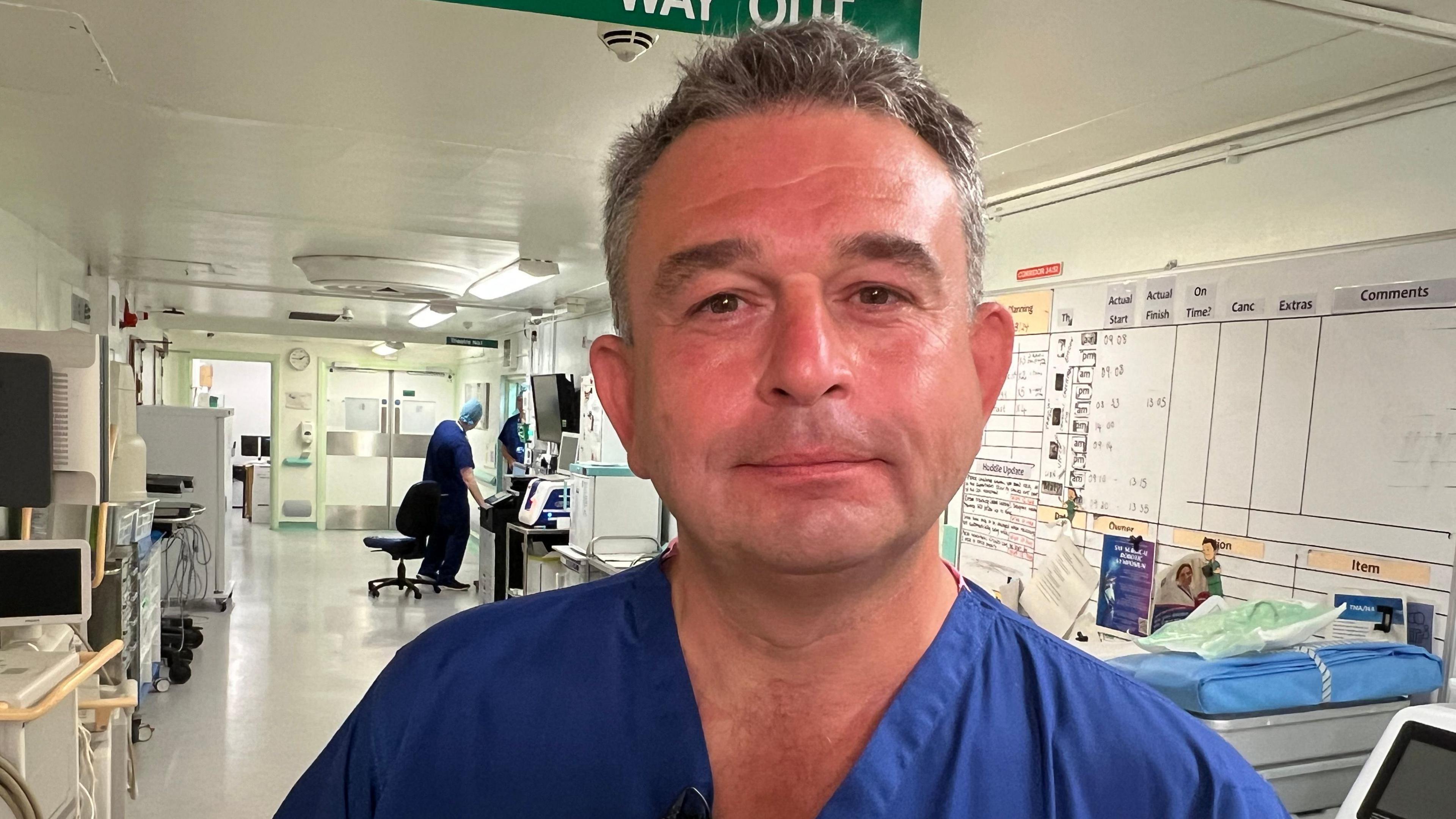
Hamish Noble said the balloon treatment is a "useful tool" for his team
Hamish Noble, who carried out the gastric bypass surgery at Musgrove Park Hospital, said the balloon treatment was a "useful tool for the team".
He said that the gastric balloon "can be placed in an outpatient setting, without an anaesthetic, without the need to use valuable theatre time.
"People are hugely grateful to have this operation and have the opportunity of having a better quality of life, getting their fitness back, having a longer life and reducing the risks of heart disease and numerous cancers," he added.
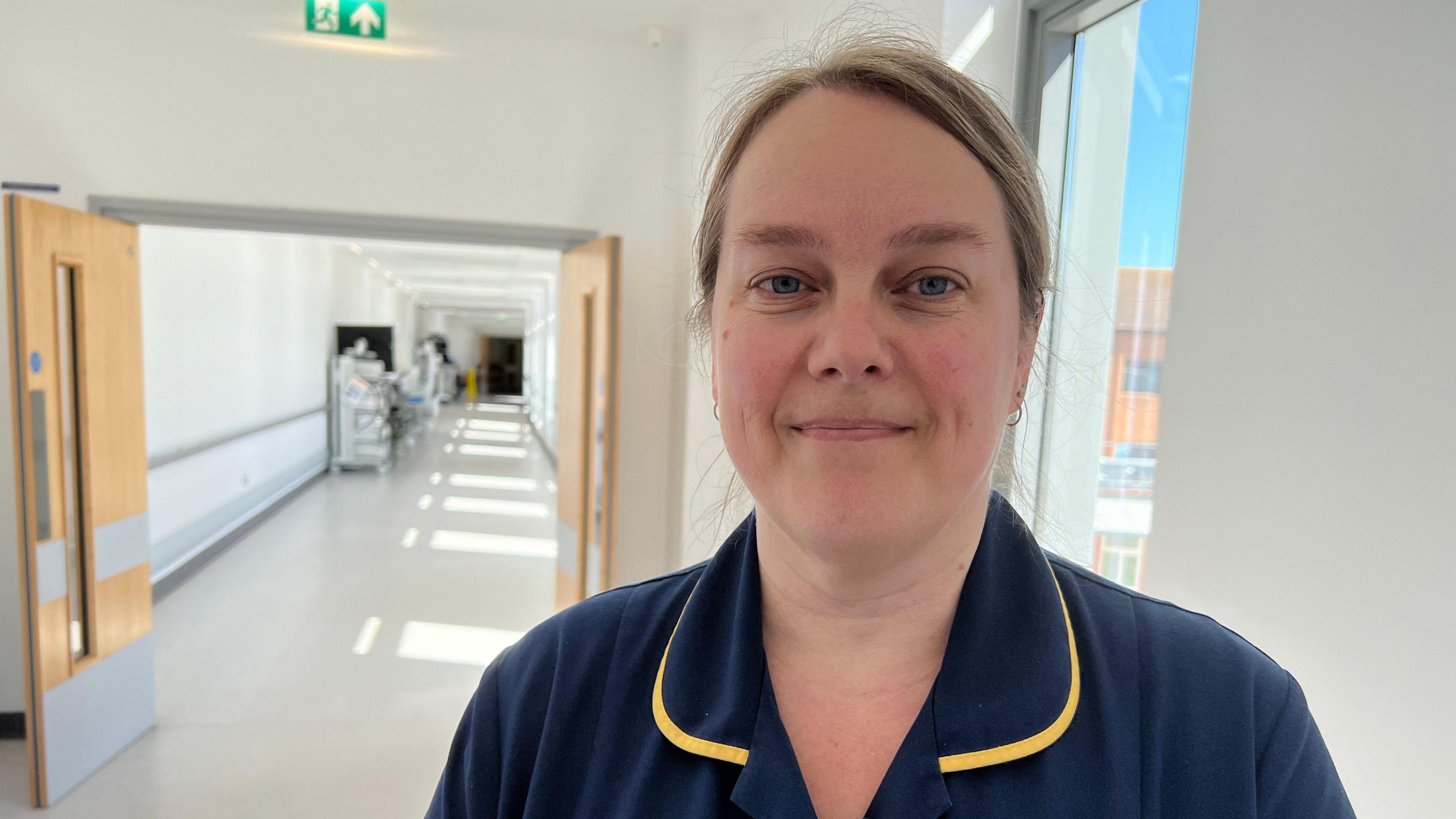
Nurse Zoe Hall said the team love to help people "turn their lives around"
Specialist nurse Zoe Hall said not only would the surgery help Mr Pulford, who has numerous health problems, it would also save the health service "a lot of money".
"If Dave just continued on and needed to receive help on a regular basis, GP visits, hospital visits, equipment at home - post this surgery he might be able to actually get rid of some equipment, certainly cut down his medication, be more active and enjoy his life again," she said.
Ms Hall said Mr Pulford had done "fantastically well".
"This is the best part of the journey for us - that's what we want to do - help people turn their lives around," she added.
What is gastric bypass surgery?
A gastric bypass is a type of weight loss surgery done by a surgeon using keyhole surgery while the patient is under general anaesthetic (asleep).
Gastric bypass includes dividing the stomach in two by using a stomach staple.
This creates a small pouch at the top of the stomach which is then attached to the lower part of the small intestine.
After surgery, food passes from your stomach pouch to the lower part of your small intestine.
The operation usually takes around 2 hours.
Get in touch
Tell us which stories we should cover in Somerset
Follow BBC Somerset on Facebook, external and X, external. Send your story ideas to us on email or via WhatsApp on 0800 313 4630.
Related topics
- Published8 February 2024
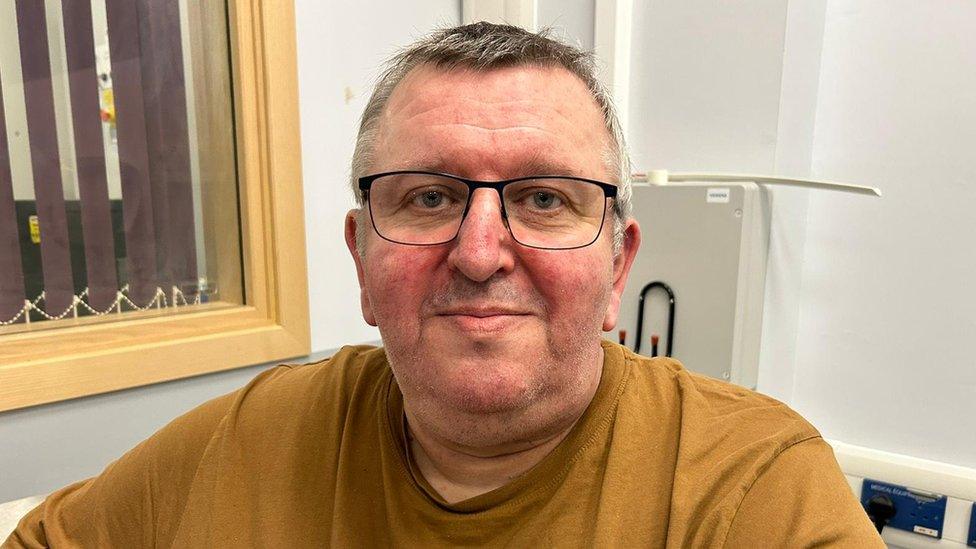
- Published23 January 2024
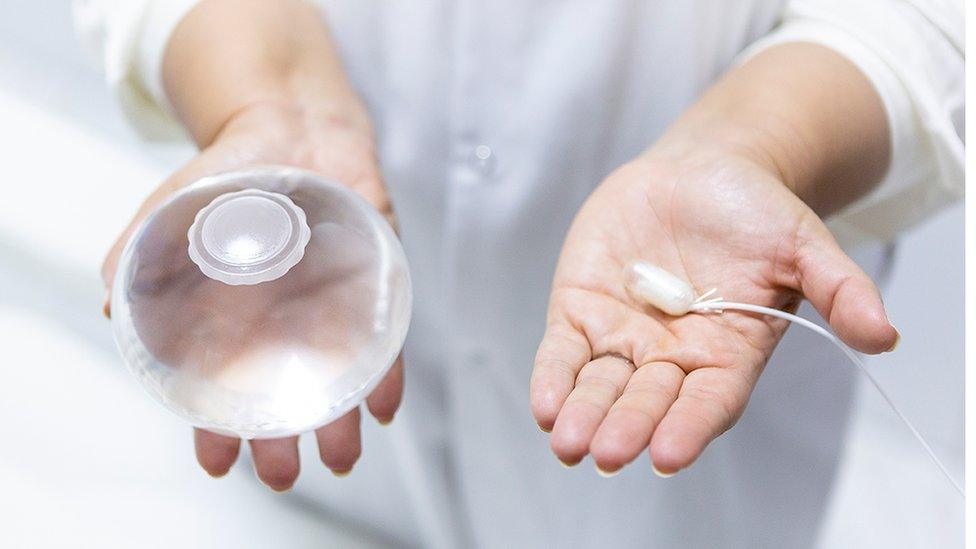
- Published18 January 2023
